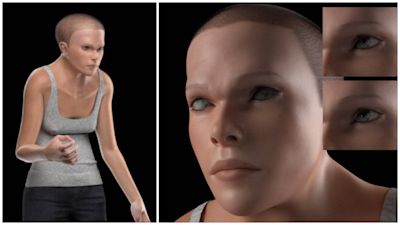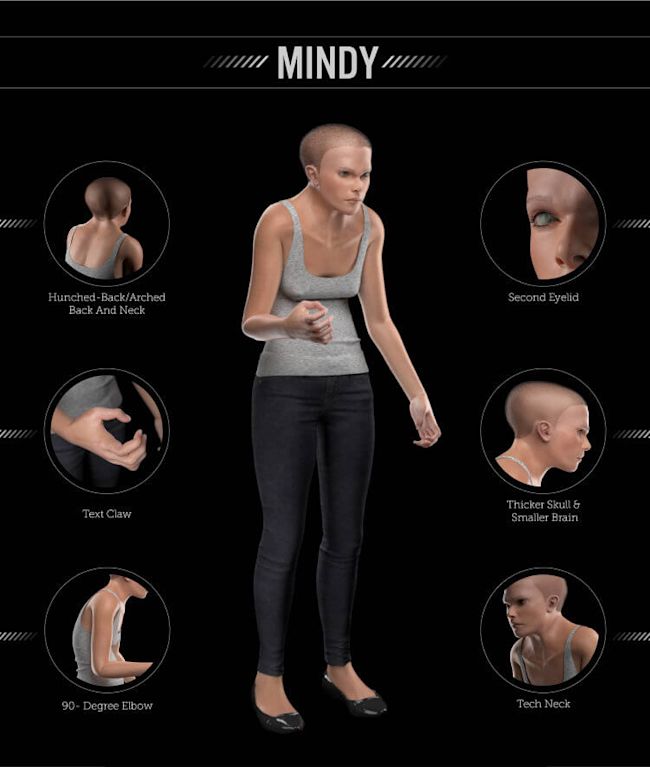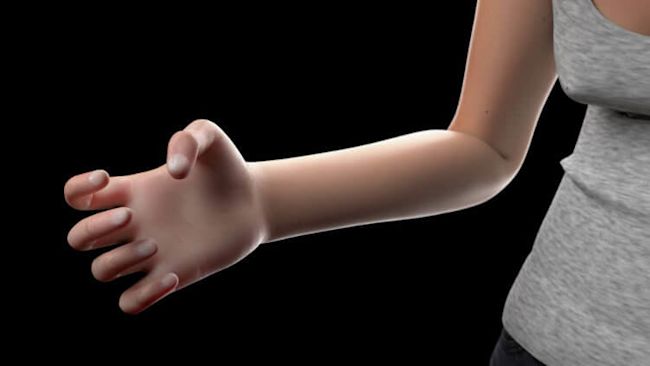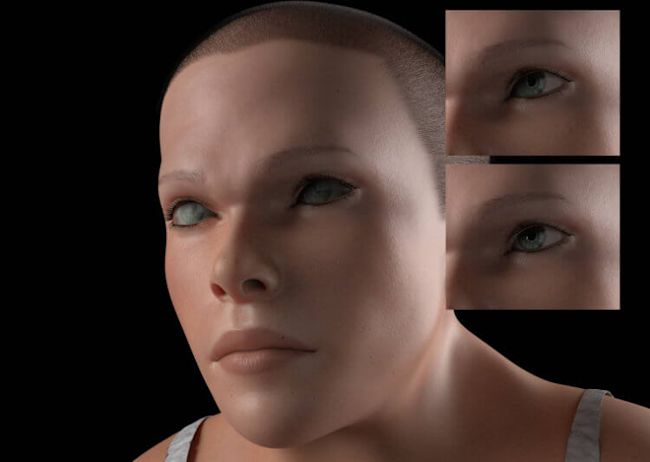‘Tech neck’ and ‘text claw’ – what humans could look like in the year 3000 from ITV news


Future humans could have smaller brains, second eyelids and hunched backs due to overusing technology, new research claims.
It’s thought looking down at mobile phones and spending hours sat at a computer screen could impact on how we develop over time.
After collecting scientific research and expert opinions, the US technology company TollFreeForwarding.com has created a 3D model of a potential future human called ‘Mindy’.
Mindy, who is from the year 3000, has a body which has changed significantly because of smartphone, laptop and technology usage.
The researchers said the “exaggerated” changes to the body show the potential harm of using technology too much, both physically and mentally.
The full changes to the body include:
- Hunched back
- Text claw
- 90-degree elbow
- Tech neck
- Thicker skull
- Smaller brain
- Second eyelid
Researchers say this is an exaggerated version of what the future human could look like due to technology usage. Credit: TollFreeForwarding
Hunched back:
A more arched back and neck is one of the potential changes the study said technology could cause to the body.
By looking down at phones or up at office screens, our posture changes and our body becomes under more strain.
Caleb Backe, a health and wellness expert at Maple Holistics, said looking at phones “throws your spine off balance”, while neck muscles have to “expand extra effort to support your head”.
Text claw:
Mindy also suffers from so-called ‘text claw’, according to the study.
The condition occurs after gripping your smartphone and curling your fingers into an unnatural position for long periods of time.”Text claw” is a condition that results from excessively holding your mobile phone. Credit: TollFreeForwarding

90-Degree Elbow:
The other change that could affect future humans’ arms is having a 90-degree elbow, also known as ‘smartphone elbow’.
It is caused by holding a smartphone too much – either for general use or when making phone calls.
Scientifically, this position stretches nerves and can cause “weakness in the hands”.

Thicker skull and smaller brains:
The study also explored the potential damage of smartphone radiofrequency radiation.
This concerns a 2011 World Health Organisation report which classified smartphone radiation as “possibly carcinogenic to humans”.
A number of studies are seeking to establish the long-term impact, but the research by TollFreeForwarding proposes that Mindy has a thicker skull to protect her from harm.
Future humans will also have a smaller brain inside of that skull, according to the study.
In 2010, cognitive scientist David Geary said that human cognitive ability may decline because of technological advances in agriculture, health and more, meaning humans have to do less to survive.
The TollFreeForwarding research claims this may mean humans “shrink”. Mindy the future human has developed a second eyelid to prevent harm from technology and screens. Credit: TollFreeForwarding
A Second Eyelid
The research also suggests human eyes may adapt to the harm screens can cause.
Adapting to prevent headaches, eye strain and blindness, Mindy has developed a “larger inner eyelid to prevent exposure to excessive light”.
The study also added technology could mean humans are more vulnerable to anxiety and stress related issues.
So how do you stop yourself from looking like Mindy – the future human?
- Take regular breaks from technology
- Exercise
The study added that employers can help employees by encouraging breaks or offering free gym memberships.